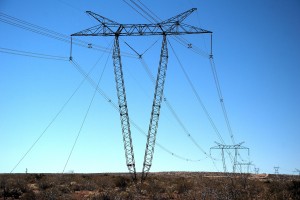This week’s reading by Duncan Watts looked at the idea of networks in general, reaffirming the idea that ‘the relationship between the parts is more important than the parts themselves’. The first example he used to demonstrate the unpredictability and interdependence of network structures was the power system, i.e. the electricity network. However, what I found most interesting about this example, was Watts’ position on electricity in general. He states that: ‘the
power system is arguably the most essential technological feature of the
modern world. More pervasive even than highways and railroads, and
more fundamental than cars, airplanes, and computers, electric power
is the substrate onto which every other technology is grafted, the foundation
for the grand edifice of the industrial and information ages.
Without power, pretty much everything we do, everything we use, and
everything we consume would be nonexistent, inaccessible, or vastly
more expensive and inconvenient. Electricity is a fact of life so basic
that we cannot imagine being without it.’
And in many ways I agree. Without electricity, my proposed career would be somewhat non-existent – anything to do with digital film or computer editing/animation would be impossible. Nevertheless, what intrigued me was how this idea contradicted what Murphie and Potts discussed in last week’s reading on technology and culture. Lewis Mumford claimed that the clock was the ‘key machine of the modern industrial age’. This era seemed to be obsessed with the idea of speed and efficiency…and of course to increase speed, you must be able to measure time. Mumford states that ‘a desire to increase speed…lies behind all politics, all wealth’, but then doesn’t electricity as well? So maybe both technologies, clocks and power stations, are to thank for ‘driving this relentless engine of civilization’.



